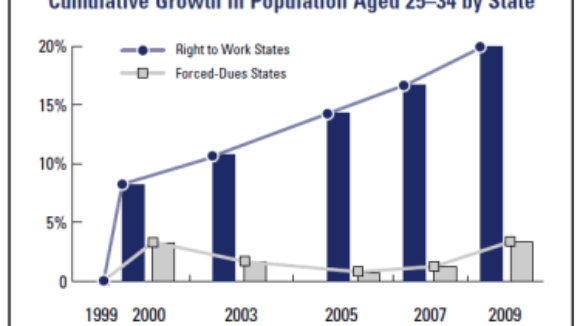Mitt Romney & Newt Gingrich support FDR's forced unionism policy
From BigGovernment com:
As reported in the Boston Globe and as seen in the New Hampshire debate video, both Mitt Romney and Newt Gingrich believe it is perfectly okay for the federal government to mandate that every private sector worker in the United States pay forced-dues to labor unions as a condition of getting or keeping a job. Attention Mr. Romney and Mr. Gingrich: Right To Work is not a states’ rights issue, it is a freedom issue. The Federal government should not mandate compulsory unionism.
Mitt Romney from the Boston Globe, “Pressed by John Kalb, executive director of New England Citizens for Right to Work, about whether he would actively advocate for a federal law, Romney responded, ‘I’m a Tenth Amendment guy. I’d like the states to be the place we carry out this path.’”
It appears that Forced Unionism is a Big Government idea that Newt & Mitt embrace. In fact, it was the brain child of our Biggest Big Government president, before Obama. Franklin Roosevelt’s 1935 Wagner Act used, for the first time, federal powers to force every working man and woman to pay a third party, Big Labor bosses, in order to get or keep a job. It was wrong then, and it is outrageous now. Why would Gingrich and Romney embrace it?
